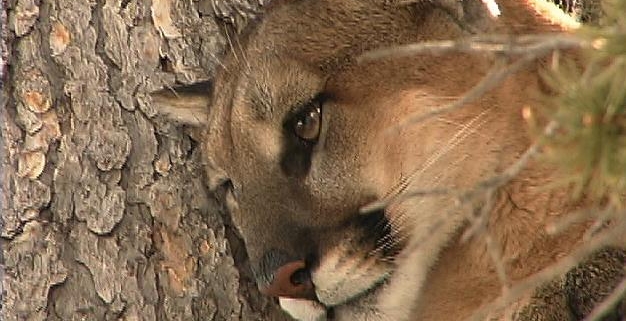Legislative News
The most challenging aspect of advocating for wildlife is the uncertainty of whether our efforts are making progress or if we are losing ground. This is particularly relevant when it comes to recognizing that every species plays a role in the ecosystem.
Requesting consideration for the ecological impact of large carnivores is not just about emotions.
The term “emotion” is often used to belittle individuals who have a different perspective on wildlife and its relationship with human presence.
However, we are an emotional species at every level, not just those who advocate for a non traditional approach to managing our precious wildlife resources. The 10th Amendment of the Constitution assigns responsibility to each state This responsibility is actually held in the public trust for all people, similar to clean water and air.
It is hard to comprehend the “sport” hunting of mountain lions, which is allowed in 14 out of the 16 states with breeding populations. It is important to understand that “sport” hunting is a hobby, and while some hunters may eat the meat of the animal they hunt, this is not their primary motivation. In states where bears, lions, and wolves are classified as Trophy Game and there is no wanton waste statute, nothing is required to be taken back except proof of the animal’s sex and a tooth for data recording. Often only parts that can be hung, mounted, or walked on, are retrieved.
In Wyoming, hunt areas have reached their “harvest mortality limits” for lions quickly, and hunters who use hounds have lobbied to continue chasing lions until the end of the season, even after the limit has been reached.
This extended chase season is not a harmless alternative to killing. It is in addition to the long days and weeks of pursuing lions from September 1st until the limit is met.
The Cougar Fund has grave concerns about adding to the already harsh mountain lion hunting opportunity.
Mountain lions are a keystone species
A keystone species is a species in an ecosystem that plays a critical role in maintaining the balance of that ecosystem. Its presence and impact on the ecosystem are much larger than would be expected based on its abundance. The loss of a keystone species can cause significant changes to the ecosystem, potentially leading to a cascade of effects that alter the balance of the ecosystem and the interactions between its species.
- Hounding mountain lions can disturb the balance of the ecosystem by driving lions out of their territory and leading to competition for food and resources and intra-species conflict.
- It can also cause significant stress to the animal, especially female lions who may have young not traveling with them and become separated.
- It can lead to the death of the animal, either from the hounds themselves or from the lion’s inability to find food or shelter after being chased out of its habitat.
- This practice can be cruel, as the animal may be tracked for long distances and chased for hours before finding refuge in a tree or cave. (Most hunting occurs when an animal is unaware of its fate)
- The hounds can also kill kittens that cannot climb to safety.
- Being chased by hounds is not a hazing tool; lions are simply cats that climb to escape, a remnant from a time before humans when they had to escape large canids on the landscape.
- Lions are often near where they can find food, so constant hounding will also affect the winter range of ungulates during their most vulnerable time of the year.
- Chasing lions through the end of March coincides with the critical last two months of deer pregnancy, when the doe’s health is vital for the viability of the fawn.
Let’s remember when we hear that a season has closed and there is a problem because there are hounds that can no longer be trained or exercised but have to be fed, is that having these hounds is a choice, a hobby. Should our wildlife really be expected to pay for those choices?

 Cara Blessley Lowe
Cara Blessley Lowe